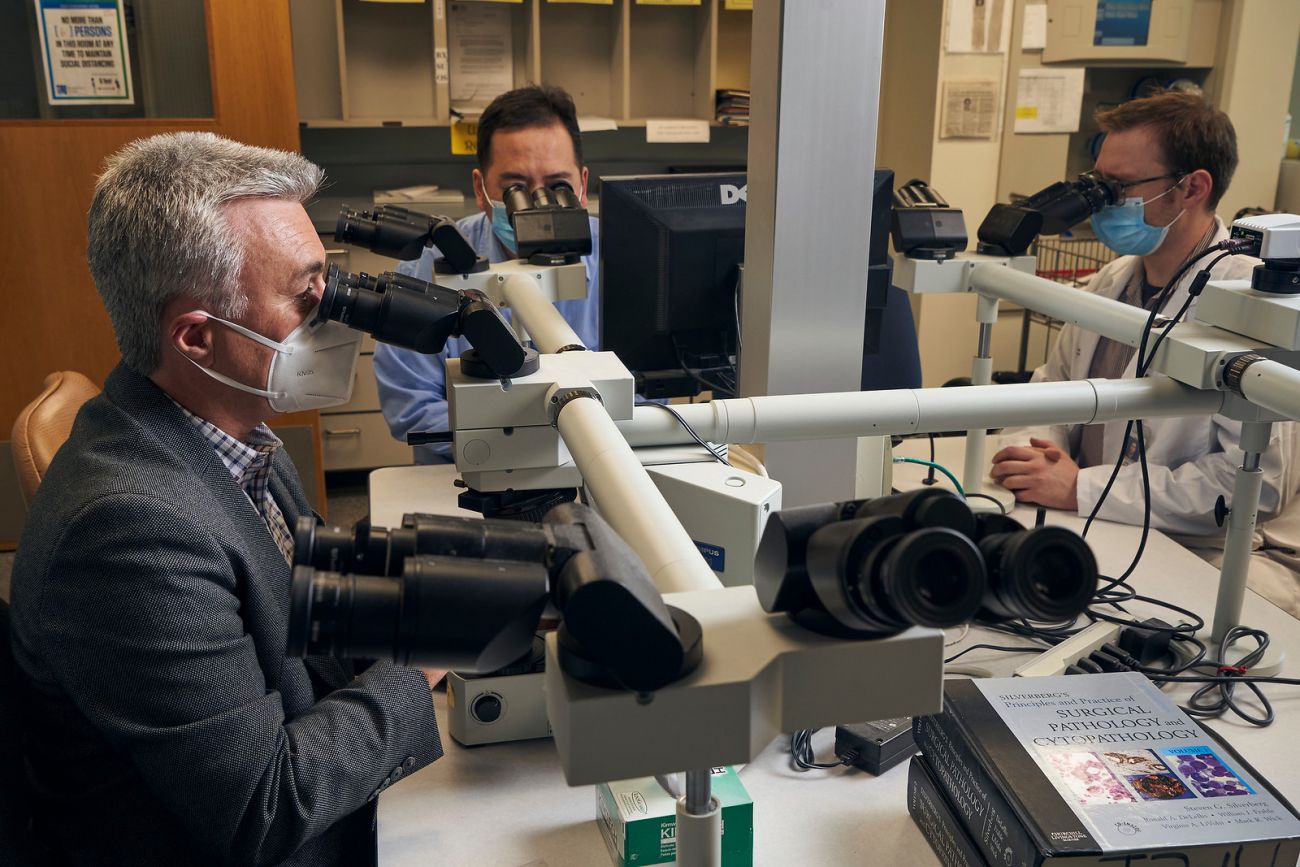Our experts deal with chronic lymphocytic leukemia every day and can zero in on unusual characteristics of your disease at the genetic or molecular levels. Specialized testing will ensure that your diagnosis is accurate and enable us to create the best treatment plan for you. It will also determine whether you are eligible to take part in clinical trials of promising new treatments that are not widely available.
At Roswell Park, standard diagnostic tests for leukemia include:
- Physical exam: Your doctor checks for swollen lymph nodes, spleen or liver.
- Blood tests: The lab does a complete blood count to check the number of white blood cells, red blood cells and platelets. Leukemia causes a very high level of white blood cells. It may also cause low levels of hemoglobin — which is found inside red blood cells — and platelets.
- FISH Cytogenetic and molecular studies: These studies are performed on the blood or bone marrow to detect genetic abnormalities that may affect your prognosis or treatment options.
- Biopsy: A bone marrow biopsy is the only way to confirm that leukemia cells are present in the bone marrow. There are two ways your doctor can obtain bone marrow, and some people will have both procedures during the same visit. You will be given either local anesthesia (to numb the biopsy site) or general anesthesia (which puts you to sleep for the procedure).
- Bone marrow aspiration: The doctor uses a thick, hollow needle to remove samples of bone marrow.
- Bone marrow biopsy: The doctor uses a very thick, hollow needle to remove a small piece of bone and bone marrow.
- Chest x-ray: An x-ray can show swollen lymph nodes or other signs of disease in your chest.
Pathology
Roswell Park’s Pathology team includes specialists who are board-certified in hematology. They focus exclusively on the diagnosis of blood cancers, including leukemia, and are highly skilled in identifying the various types of leukemia.
On average, when cases are referred to Roswell Park pathologists for a second opinion, 10% result in a change of diagnosis. This can mean that someone was diagnosed with cancer but does not actually have cancer; that someone has cancer but was told previously that cancer was not present; or that the type of cancer found is different from the type that was originally diagnosed. It is very important that you receive the right treatment for your specific type of leukemia.
